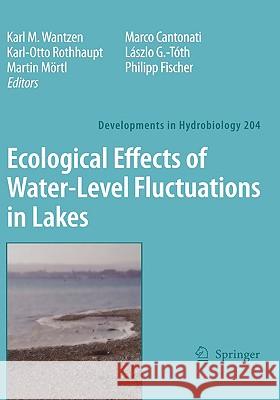Ecological Effects of Water-Level Fluctuations in Lakes » książka
Ecological Effects of Water-Level Fluctuations in Lakes
ISBN-13: 9781402091919 / Angielski / Twarda / 2008 / 192 str.
Most aquatic ecosystems have variable water levels. These water-level fluctuations (WLF) have multiple effects on the organisms above and below the waterline. Natural WLF patterns in lakes guarantee both productivity and biodiversity, while untimely floods and droughts may have negative effects. Human impacts on WLF have led to a stabilization of the water levels of many lakes by hydraulic regulation, untimely drawdown due to water use, or floods due to water release from hydropower plants in the catchments.
This book provides a first review in this field. It presents selected papers on the ecological effects of WLF in lakes, resulting from a workshop at the University of Konstanz in winter 2005. Issues addressed here include the extent of WLF, and analyses of their effects on different groups of biota from microorganisms to vertebrates. Applied issues include recommendations for the hydrological management of regulated lakes to reduce negative impacts, and a conceptual framework is delivered by an extension of the floodpulse concept for lakes. Current impacts on water use, including increasing demands on drinking and irrigation water, hydropower etc., and climate change effects on WLF make this book an essential resource for aquatic ecologists, engineers, and decision-makers dealing with the management of lake ecosystems and their catchments.











